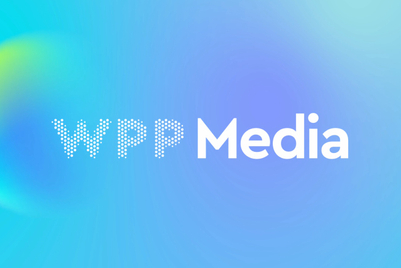
The apparent flop of the recent Facebook IPO has resulted in many a pundit retrospectively pointing out the huge risk in Facebook's business model. Despite a billion regular users, Facebook has only one working sales model—selling advertising.
Its worked pretty well for Google these last 14 years, but even the search behemoth is having trouble coming up with services that users are willing to pay for. Both companies are the victim of their own success; in attracting so many eyeballs it's hard to think of any other scalable business model other than advertising. And this is particularly exacerbated on the small screen.
In the first Internet wave, dotcoms struggled through a variety of business models trying to find ones that worked. In the late '90s, online media's low share of ad spend (and a lack of targetting data) conspired to make advertising a model of last resort. Most startups failed in spectacular fashion. So did many companies trying to sell low-margin products online (remember Webvan?).
Even as late as 2001, Amazon was still losing nearly a billion dollars a year. And yet it survived thanks to bravely sticking to its strategy, and some very deep pockets and the patience of investors. Facebook now finds itself in similar territory, the social giant having to downgrade its revenue forecast due to lower than expected mobile ad growth. Zuckerberg to date has insisted on ensuring a high-quality user experience on mobile devices, not willing to break the flow by inserting ads in inappropriate places (and times). But as a publicly listed company, its investors are hungry to see the business model evolve and understand how Facebook will take advantage of its huge share of mobile Internet traffic.
Amazon's two most successful non-traditional revenue generators are its EC2 cloud computing platform and the Kindle, which together make up no more than US$6 billion of an estimated 2012 revenue of US$50 billion. It may be a small percentage of overall sales, but taken in their own right, these are successful new business models. But Amazon has always sold stuff, so its user base is used to and more importantly expects to pay for Amazon's services.
For Facebook, the problem is that its whole platform is built around a computer screen experience, and monetised accordingly. Just how it will transition to a profitable mobile service is a difficult question to answer when the target platform keeps evolving at a dizzying pace. This is not just Facebook's dilemma, but one for all online advertisers. The number of Internet-connected devices across which consumers will divide their time will continue to grow.
The penny dropped for me when I realised I'd never find one travel device to meet all my needs. No one device can replace my Blackberry, iPhone, Kindle and laptop. And it never will, because the form factor simply won't allow it. Think about kitchen appliances. Sure, there are many multi-function blenders/juicers/mixers on the markets, but none will cook your rice or boil your water. Apple's success as a technology company is thanks to Jobs' modelling of the Cuisinart food processor as the inspiration for his Apple II design. Jobs realised that computers would become consumer products, and 30 years later we've witnessed the spawning of Apple (and competitor) products into every facet of our lives.
I think about the impact of an increasing number of Internet-connected devices not by screen size, but by activity type. Even though a large number of TV viewers have a computer on their laps and are multitasking with search, chat, email and homework, they are still sedentary couch potatoes at that time. If you're not moving, your gaze can safely attend to the screens around you. But if you're moving about, driving, or cooking, screen real estate can't be dominated by advertising, else it stops being the reason you're online. I've heard predictions that augmented reality glasses are the answer, and we know that Google is actively working on this today. Its interesting and very sci-fi, but the prototypes look dorkier than wearing a bluetooth headset. My personal view is that we'll see widespread adoption of smaller, stylish earpieces before the goggles, as voice will always be trafficked over our cellular and data networks, leaving our eyes and hands free to do whatever. Perhaps this creates an opportunity for targetted audio ads—telemarketing for the 21st century. But much like radio and TV, this interruptive type of advertising only works with linear content that has our attention from start to finish, not when we're actively consuming chunks of data on our terms.
In his 2011 book "Adapt", economist Tim Harford claims that the world is too complex and unpredictable for big problems to be solved by strategy. Borrowing from evolutionary theory, Harford gives compelling reasons why the best way for companies to survive and thrive is to keep experimenting with small but sometimes radical changes, and let the environment select which innovation works rather than making a big expensive bet on strategy that could fail big time. And that is what Facebook is doing today.
In May this year, New Zealand users were provided with an option to pay for their posts to be highlighted (around $2 USD per post). The company hasn't published or commented on the results of the trial, but I'm sure its a sign of things to come. New Zealand is often used as a test market, because its demographically representative of most Western countries but sufficient small not to worry about failures (sorry Kiwis).
Reports have surfaced this week that Facebook is now looking to open up its services to the under-13 market (though I'd really like to know just how many of its billion users lie about their age today). And last week, rumours surfaced that Facebook is planning to build its own smartphone to prevent it from becoming just another app on other mobile platforms. They may be bad ideas, but they're ideas nonetheless, and I don't hear anyone coming up with better ones.
So I have a couple of suggestions for Zuckerberg. Why not split the revenue from mobile ads with consumers? Given their data is so important, why shouldn't consumers share in the riches of their own making. Or create a currency that can be used and redeemed online. With over a billion users, it could become bigger than the Yuan (although I think creating your own currency is somewhat illegal).
I personally don't think any of these ideas will work, so I'll join the chorus of pundits who say that Facebook is a risky investment. But like Amazon, there is so much value in its user base that it will eventually succeed, as long as it keeps mutating its business model and gives new variants a chance to survive. Remember, it's small furry mammals that outcompeted the dinosaurs.


+(900+x+600+px)+(3).png&h=334&w=500&q=100&v=20250320&c=1)
+(900+x+600+px).jpg&h=334&w=500&q=100&v=20250320&c=1)

.jpg&h=334&w=500&q=100&v=20250320&c=1)





.jpg&h=334&w=500&q=100&v=20250320&c=1)

+(1).jpg&h=268&w=401&q=100&v=20250320&c=1)



